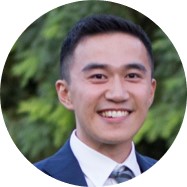
Alberto Quattrini Li, Dartmouth College
Alberto Quattrini Li is an assistant professor at the Computer Science Department of Dartmouth College. His main research interests include autonomous mobile robotics and active perception, applied to the aquatic domain, dealing with problems that span from multirobot exploration and coverage to visual-based state estimation. Some of the recent NSF funded projects include robot environmental monitoring and underwater archeology. Before joining Dartmouth, he was a Postdoctoral Fellow (2015) and Research Assistant Professor (2016-2018), at the Computer Science & Engineering Department of the University of South Carolina. He earned Ph.D. (2015) and M.Sc. (2011) from Politecnico di Milano, and B.Sc. (2009) from Università di Pisa. In 2014, he spent 6 months as a visiting PhD student at the Computer Science Department of the University of Minnesota, Twin Cities, USA.

Caroline Robertson, Dartmouth College
Caroline is an Assistant Professor in the Department of Psychological and Brain Sciences at Dartmouth College. Her research uses uses brain imaging and virtual reality techniques to probe the neural basis of memory, perception, and neurodiversity in the human brain. Caroline received her BA from Columbia University, where she studied neuroscience and philosophy. She received her PhD from the University of Cambridge, as a Gates-Cambridge Scholar and NIH-Cambridge Fellow. At Cambridge, Caroline worked in the labs of Dr. Chris Baker at the National Institutes of Health and Dr. Simon Baron-Cohen at Cambridge. She performed her postdoctoral research in the McGovern Institute for Brain Research at MIT with Dr. Nancy Kanwisher, where she held a junior fellowship in the Harvard Society of Fellows. Caroline was named a fellow of the American Academy of Achievement (2014), a NARSAD Young Investigator of the Brain and Behavior Foundation (2015), and a Kavli Fellow of the National Academy of Sciences (2016).

Enrique Shadah, Filtered A.I
Enrique developed his career in venture creation, having been exposed to all facets of the process, as a startup founder and early employee, M&A advisor, management consultant and as an academic administrator spearheading industrial collaborations and spin-offs. Enrique currently serves as Chief Operating Officer at Filtered.ai, a company that develops and commercializes a software platform that helps leaders at large organizations assess the technical skills of job applicants to positions in software engineering and data science. Enrique also has an appointment at the MIT LinQ program for biomedical innovation, housed within MIT’s Institute for Medical Engineering and Sciences, in which he focuses on managing venture and industrial relations. At MIT, Enrique developed expertise in leading a community of academics, practitioners and professionals to create win-win collaborations. For example, Enrique was the conceptual creator of MIT’s Startup Exchange, an online platform that enables interactions between MIT’s Industrial Liaison Program’s corporate members and MIT-connected startups (http://startupexchange.mit.edu) and remains an active mentor in the MIT startup community. For most of his tenure at the Institute, Enrique has held industry-facing positions including Head of the Workplace Learning Collaborative at MIT’s Abdul Latif Jameel World Education Lab (J-WEL; http://jwel.mit.edu) and Senior Industrial Liaison Officer at the Office of Corporate Relations. Prior to MIT, Enrique advised small and large firms on venture creation, helped business founders liquidate their holdings, led product development a VC-backed startup in Boston, and started three venture projects, one of which is still ongoing. Enrique earned a Masters in Business Administration from Babson College in Wellesley, Massachusetts (Magna Cum Laude) and a Bachelors of Science Degree in Mechanical Engineering from Universidad Simón Bolívar in Caracas, Venezuela. Enrique is fluent in English and Spanish and has basic knowledge of Portuguese.
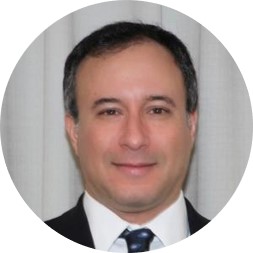
Evan Heit, National Science Foundation
Evan Heit is Division Director of the Division of Research on Learning (DRL), in the Education & Human Resources Directorate of the National Science Foundation. DRL supports fundamental and applied research and development to improve STEM learning, for all age groups and across settings. At NSF, Heit has also played leadership roles in advancing convergence research as well as research on the Future of Work at the Human-Technology Frontier. Heit’s academic background is in cognitive science. He holds a BSE in Computer Science and Engineering and a BA in Psychology from the University of Pennsylvania, and a PhD in Psychology from Stanford University. He has published numerous papers on learning and cognition by adults and children. Some of this research that is particularly relevant to his work at NSF has been on concept learning, memory, scientific and informal reasoning, metacognition, math anxiety, and statistical issues in relation to replication. Heit was a founding faculty member at the University of California, Merced, where he was also a graduate group chair, chair of the campus budget committee, and faculty senate chair. He has also been on the faculty of the University of Warwick, in the UK.

Mandy Pant, Intel
In her current role of Academic Research Director at Intel, Dr. Mondira (Mandy) Deb Pant, works with leading academic researchers worldwide and technical experts at Intel to seed and drive research efforts in areas of strategic importance to Intel in particular and the computing industry in general. Prior to this, as Intel’s lead technologist in the area of power delivery and power management, she investigated and drove several issues in the power space, particularly on-chip power delivery issues, power management and power reduction on the Intel next generation high volume server microprocessors. She has led Intel’s die power delivery company wide synergy efforts and recently driven Intel’s power delivery Roadmap program. Further, she has also been a key player in driving and deploying Intel’s internal innovation programs. She has published 20+ technical papers in prestigious VLSI conferences and journals, has 3 issued patents and 5 pending patents. Mandy received her Bachelors (B.Tech) in Computer Science and Engineering from I.I.T Kharagpur, India, a Masters (MS) in Electrical Engineering and a Doctorate (PhD) in Electrical and Computer Engineering from Georgia Institute of Technology, Atlanta, GA. She joined Intel in 2001 as part of the Alpha team acquisition from Compaq Computer Corporation where she worked since graduating in 2000. Mandy is regarded as a very strong and motivating technical speaker having given numerous invited talks at various conferences and universities, including several keynote talks and distinguished lectures. She is an active proponent of STE(A) M for Women and young girls and has participated in various efforts in promoting it across the nation in general and in the New England area in particular. In 2009, Mandy was recognized by Mass High Tech (A Massachusetts High Tech Journal) as one of the top ten upcoming Women to Watch in the New England area. In 2013, she was recognized by the India New England journal as one of the top 20 South Asian Women of 2013 in the New England area. She has recently risen to the role of Technical Chair for Intel’s biggest internal technical design conference. She is a proud Mom to two highschool girls ages 17 and 15 and is an avid reader, traveler, dancer, hiker and yoga enthusiast.

Mike Shipulski, Hypertherm
Mike has worked for public and private companies and has worked for startups and multinationals. He has worked at Hypertherm for 20 years where he has led successful product development project and has created new technologies that have led to new product platforms. He has been awarded about 40 patents. Before Hypertherm, he did foundational manufacturing technology development for a startup. And before that, he worked at GE’s research center as manufacturing scientist where he created manufacturing infrastructure and solved difficult problems. Mike has a Ph.D. in engineering from Worcester Polytechnic Institute.
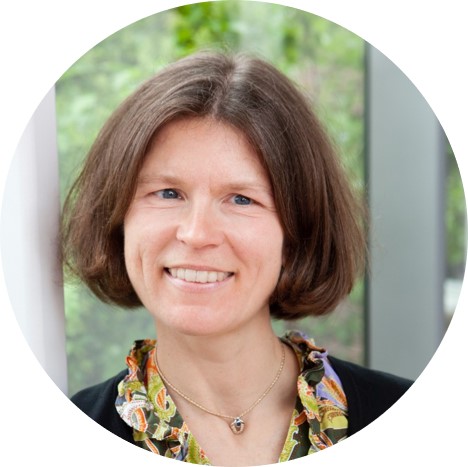
Petra Bonfert-Taylor, Dartmouth College-Thayer
Petra Bonfert-Taylor is a Professor and an Instructional Designer at the Thayer School of Engineering at Dartmouth College. She received her Ph.D. in Mathematics from Technical University of Berlin (Germany) in 1996 and subsequently spent three years as a postdoctoral fellow at the University of Michigan before accepting a tenure-track position in the Mathematics Department at Wesleyan University. She left Wesleyan as a tenured full professor in 2015 for her current position at Dartmouth College. Petra has published extensively and lectured widely to national and international audiences. Her work has been recognized by the National Science Foundation with numerous research grants. She is equally passionate about her teaching and has recently designed and created a seven-MOOC Professional Certificate on C-programming for edX, after previously having designed a MOOC “Analysis of a Complex Kind” on Coursera. The recipient of the New Hampshire High Tech Council 2018 Tech Teacher of the Year Award, the Binswanger Prize for Excellence in Teaching at Wesleyan University and the Excellence in Teaching Award at the Thayer School of Engineering, Petra has a strong interest in broadening access to high-quality higher education and pedagogical innovations that aid in providing equal opportunities to students from all backgrounds.
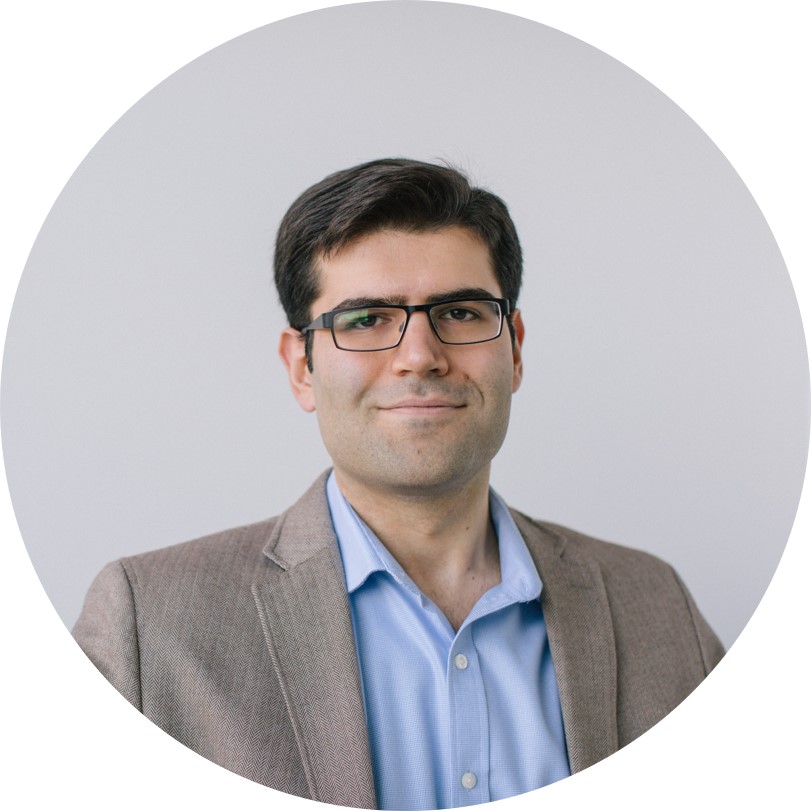
Saeed Hassenpour, Dartmouth College
Dr. Saeed Hassanpour is an Associate Professor in the Departments of Biomedical Data Science, Computer Science, and Epidemiology at Dartmouth College. His research is focused on the use of artificial intelligence in healthcare. Dr. Hassanpour’s research laboratory has built novel machine learning and deep learning models for medical image analysis and clinical text mining to improve diagnosis, prognosis, and personalized therapies. Before joining Dartmouth, he worked as a Research Engineer at Microsoft. Dr. Hassanpour received his Ph.D. in Electrical Engineering with a minor in Biomedical Informatics from Stanford University and a Master of Math in Computer Science from the University of Waterloo in Canada.

Vincent Tang, Samsung Next
Vin Tang is the Cofounder of Samsung Q Fund, an early stage venture fund focused on AI startups. Previously, he cofounded Clarapath, a venture backed startup that applied computer vision techniques to automate pathology. He mentors AI founders and researchers at the Creative Destruction Lab, NYU’s AI Nexuslab, 37 Angels, and Techstars. In his free time, he designs and implements programming languages that have no practical use.
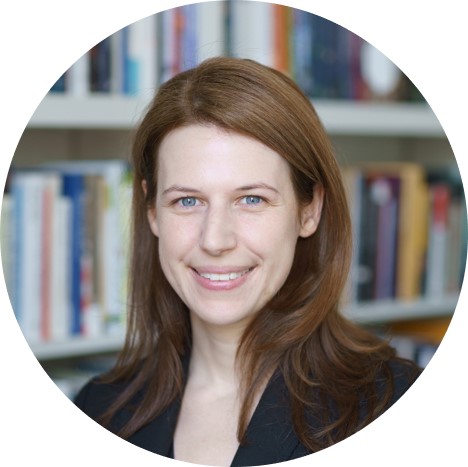
Julie Rose, Dartmouth College
Julie Rose is an Assistant Professor in the Department of Government at Dartmouth College. Her primary area of research and teaching is contemporary political philosophy, with a focus on economic justice. Julie received her Ph.D. from Princeton University in 2012. Prior to joining Dartmouth’s Government Department, she was a Postdoctoral Research Associate in Brown University’s Political Theory Project and a Postdoctoral Fellow with Stanford University’s Center for Ethics in Society. In 2017-2018, she was a Fellow-in-Residence at the Edmond J. Safra Center at Harvard University. At Dartmouth, Julie teaches courses on Political Ideas, Ethics and Public Policy, the Ethics of the Family, Ethics, Economics, and the Environment, and Justice and Work.

Andrew Campbell, Dartmouth College
Andrew is an experimental computer scientist working in mobile computing. His research interests include using embedded sensors and machine learning on phones and wearables to infer human behavior with applications to health, particularly mental health sensing. Andrew lead the StudentLife project at Dartmouth. During 2016-2017 he spent a year working at Google and Verily Life Sciences as a visiting researcher working on Android and depression sensing.
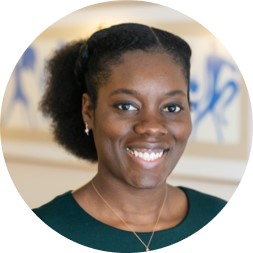
Temiloluwa Prioleau, Dartmouth College
Temiloluwa is an Assistant Professor in the Department of Computer Science at Dartmouth College. Her research interest is in the application of data science to human sensing and health. This includes developing and using mobile, wearable and digital solutions to understand, monitor, and affect bio-behavioral factors that influence health. Temiloluwa part of the DartNets Lab and an affiliate of the Center for Technology and Behavioral Health (CTBH). Before joining Dartmouth, she was a Rice Academy Postdoctoral Fellow in the Scalable Health Labs. Temiloluwa received her B.Sc. in Electrical and Computer Engineering from The University of Texas at Austin. Following that, she worked in industry for one year before pursuing an advanced degree. She obtained her M.S. and Ph.D. also in Electrical and Computer Engineering, both from Georgia Institute of Technology where she was a member of the GTBionics Lab.

David Whittaker, US Navy
CAPT Whittaker is the Chief Medical Officer for the DHA’s Innovation Group, and serves as the Life-Science Liaison Officer for the OSD’s Office of Emerging Capabilities and Prototypes. He came to these positions as the previous Chief of Vascular Surgery at Walter Reed National Military Medical Center. He is a fully practicing Vascular Surgeon whose clinical expertise spans the full breadth of minimally invasive endovascular procedures and open vascular reconstructions. His work in both the private and academic medical sectors has enabled a wide-ranging perspective on the clinical and technological factors that affect casualty-care and operational life-sciences. A Fellow of the Society of Vascular Surgery and a Fellow of the American College of Surgeons, he is an active contributor to medical research and clinical practice guidelines with numerous publications, textbook chapters and presentations to his name. Furthermore, CAPT Whittaker is a member of the National Venture Capital Association which has provided him with the unique ability to see and experience entrepreneurial spirit on both a small and a grand scale. This experience has provided him with a unique set of skills to help introduce a series of alternative technologies, tactics and processes to the DoD’s Military Health System. From his re-engineering of the Vascular Division at WRNMMC, to the development of Energetic Amputation and Sterilization programs, to coordinated public-private development programs for autonomous medical intervention capabilities, CAPT Whittaker seeks to continuously improve the current medical and life-science paradigms impacting the National Defense Strategy. CAPT Whittaker graduated from the US Naval Academy with a BS in Mechanical Engineering and received his MD from the University of New York at Stony Brook School of Medicine. He completed his General Surgery residency at Massachusetts General Hospital (Harvard University) and his Vascular Surgery fellowship at Dartmouth-Hitchcock Medical Center (Dartmouth College).

Charles Sullivan, Dartmouth College
Charles R. Sullivan is Professor of Engineering at Thayer School of Engineering at Dartmouth where his is also Director of the NSF Power Management Integration Center. He received a B.S. degree in from Princeton University in 1987 and a Ph.D. from the University of California, Berkeley in 1996. He has published over 190 technical papers and holds 42 US patents. His research expertise includes modeling and optimization of electromagnetic components for high-frequency power conversion; thin-film magnetic materials and devices; and wireless power transfer. He is a Fellow of the IEEE, the recipient of the 2018 IEEE Power Electronics Society Modeling and Control Technical Achievement Award, and a co-founder of Resonant Link, LLC.
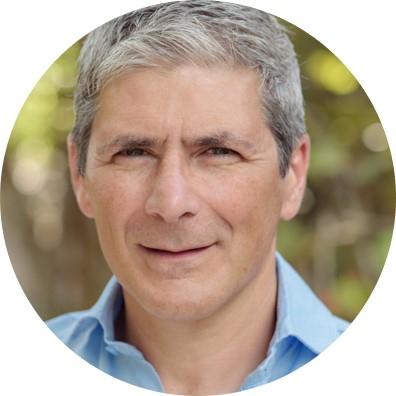
Pino Audia, Dartmouth College-Tuck
Pino Audia is a professor of Management and Organizations at the Tuck School of Business at Dartmouth College. Prior to Tuck, he was on the faculty of the Haas School of Business at U.C. Berkeley and London Business School. His award-winning research focuses on psychological barriers to organizational adaptation and leadership effectiveness and social barriers to entrepreneurial activity. He is internationally known for his work on how success plants the seeds of failure; why decision makers fail to learn from failure; why, contrary to widely held beliefs, successful start-ups do not start in garages; why industrial agglomerations persist; and why new type of firms emerge in some places but not others. In recent papers, he has analyzed the impact of individuals’ motivation to maintain a positive self-image (self-enhancement) on decision making and learning as well as biases in the assessment of social networks. Currently, besides continuing his work on self-enhancement and learning, together with Computer Science Professor Andrew Campbell, he is using passive sensing technologies to gain an understanding of task performance and social interactions in work settings based on what people do rather than on what people say in surveys. In addition to being published in top academic journals such as American Journal of Sociology, Administrative Science Quarterly, Academy of Management Journal, Academy of Management Review, Management Science, Organization Science, and Organizational Behavior and Human Decision Processes, his research has been featured in Forbes, Business Week, The Washington Post, The Financial Times, Boston Globe, Bloomberg Radio, National Public Radio, Fast Company, The Wilson Quarterly, IEEE Spectrum, CNN, Harvard Business Review and several international media outlets. A winner of the Outstanding Publication in Organizational Behavior award from the Academy of Management, a finalist for the California Management Review’s Accenture Award, and a finalist for the best paper in the Academy of Management Journal, Prof. Audia lectures on leadership, power and influence, and managing change.

Andy Rankin, Citrix
Andy is the Director of Strategic Alliances for Citrix Intelligent Workspace. He joined Citrix via the Sapho acquisition where he partnered with the founders to provide the initial funding and was the Vice President of Partnerships. He’s an angel investor in 25+ technology companies like Wish, Opendoor, Vurb (Acq. Snapchat), Index (Stripe), Voicea (Cisco), Conductant (Docker), TheAthletic, Gigster, and Addepar. He became interested in startups at Dartmouth and leads the Class of 2005 Grant for Entrepreneurship with the Magnuson Center. Early in his career he helped create and led the Early Warning System at Redpoint Ventures.
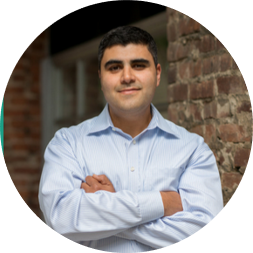
Fouad EINagger, Citrix
Fouad ElNaggar is the Vice President of Product Management at Citrix. Previously, he was the Founder & CEO of Sapho, the leading employee experience platform, recently acquired by Citrix for $225M. Prior to Sapho, he was the Chief Strategy Officer at CBS Interactive overseeing strategy, operations, partnerships, and M&A. At CBSi, Fouad helped drive the Digital Transformation of CBS while also structuring major deals with partners such as Yahoo, IAC, and Twitch and acquiring premium brands such as TV Guide and Giant Bomb. Prior to CBSi, Fouad was a venture capitalist at Redpoint Ventures overseeing the firm’s LA office and helping establish a dedicated fund in Brazil. While at Redpoint, Fouad served on the board and helped lead investments in BlueKai (acquired), Machinima (acquired), Clicker (acquired), Scribd, Grupo Xango, and Tantalus. Fouad has previously founded four venture-backed companies – in addition to Sapho, Marketing Technology Solutions (acquired), Liquid Light (acquired), and Hark. Fouad earned a BA with honors from Dartmouth College and an MBA with high honors from UCLA.

Jacqueline Wernimont, Dartmouth College
Jacqueline Wernimont is a feminist scholar working toward greater justice in digital cultures. She writes about long histories of media and technology – particularly those that count and commemorate — and entanglements with archives and historiographic ways of knowing. She is a network weaver across humanities, arts, and sciences. This work includes co-Directing HASTAC and Dartmouth’s Digital Humanities and Social Engagement Cluster. Jaqueline received her Ph.D. and M.A. in English Literature from Brown University and a B.A. in English from the University of Iowa. She became involved with digital humanities while working as an encoder, project manager and textbase editor and Brown University.
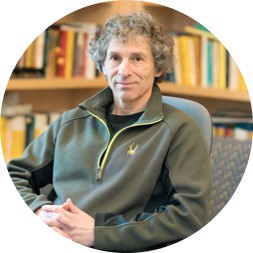
Daniel Rockmore, Dartmouth College
Daniel Rockmore is a Professor of Mathematics and the William H. Neukom 1964 Distinguished Professor of Computational Science, as well as director of Dartmouth’s Neukom Institute for Computational Science. His research interests include complex systems, network analysis, machine learning, and cultural evolution. He is a frequent contributor to The Huffington Post and author of, among other publications, Stalking the Reimann Hypothesis, a book about prime-number theory. Dan received his Ph.D. and M.A. in Mathematics from Harvard University.
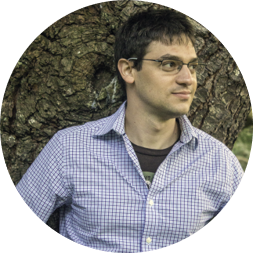
Jeremy Manning, Dartmouth College
Dr. Manning is Assistant Professor of Psychological and Brain Sciences at Dartmouth, and directs the Contextual Dynamics Lab. His lab uses powerful computational models and brain recording methods to understand how we extract information from the world around us. Jeremy received his Ph.D. in Neuroscience from the University of Pennsylvania and his B.S in Neuroscience and Computer Science from Brandeis University.
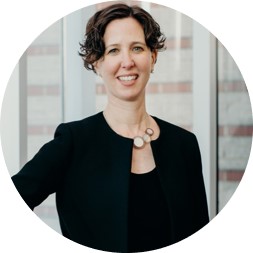
Alexis Abramson, Dartmouth College
Alexis Abramson is the 13th dean of Thayer School. Prior to joining Dartmouth, she was the Milton and Tamar Maltz Professor of Energy Innovation at Case Western Reserve University and served as a director of the university’s Great Lakes Energy Institute focused on creating sustainable energy technology solutions. During the Obama administration, Abramson served as chief scientist and manager of the Emerging Technologies Division at the U.S. Department of Energy’s Building Technologies Program. In 2018, she served as technical adviser for Breakthrough Energy Ventures, a $1 billion effort launched by Bill Gates to combat human-driven climate change. As a leader in sustainable energy technology and advanced energy research, Abramson has authored more than 60 peer-reviewed publications.

Ankur Jindal, Tata Communications
Based in the Silicon Valley, Ankur Jindal is the global head of Corporate Venturing and Innovation at the $2.5bn Tata Communications, a global digital infrastructure services provider, and part of the $110bn Tata Group. In his 22+ years of experience in the technology space, Ankur has held many leaderships positions across sales, strategy, operations, M&A, consulting, innovation and venturing, operated in multiple international geographies. In his current role, he is responsible for incubating internal start-up ventures, driving start-up partnerships and investments, and leading university engagements, working closely with the external innovation ecosystem partners and internal lines of businesses. He also represents his company on governing / investment councils of industry partners and as a Board advisor to start-ups. Areas where TCL is sourcing innovation span across SDN/NFV, IoT, AI / ML, predictive security, mobility platform & services, AR/VR, blockchains and digital customer engagement. Ankur is an electrical engineer from IIT Delhi and MBA from IIM Calcutta, both India’s premier education institutes. His interests beyond work include travelling, golfing and coaching.


